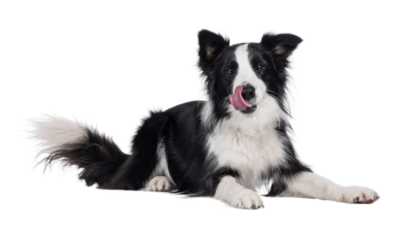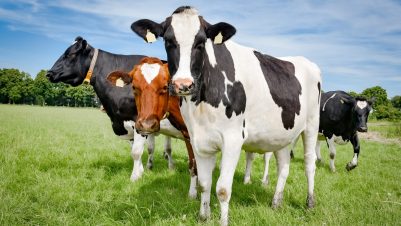Official Veterinarians (OVs) play an integral role in multiple facets of veterinary work in Great Britain. However, not many people know about these veterinary heroes and the work they do for us every day. What is an OV? What role do they play in the veterinary industry? Who can become one, and how do you go about doing so? If you’re looking for the answers to these questions, there’s no need to keep digging – your investigations can end here!
In part one of this mini-series breaking down the fundamentals of OV practice, we asked Improve Veterinary Education’s Official Veterinarian team to answer all these burning questions so we can get to the bottom of this mystery! Read on for a deep dive into the fundamentals of Official Vets.
What is an Official Vet?
An Official Veterinarian or “OV” is a veterinarian authorised to carry out work on behalf of a government. In Great Britain, the Animal and Plant Health Agency (APHA) is the agency and governing body that authorises OVs on behalf of the government.
What roles do OVs play in the veterinary profession?
OV work is very varied and covers multiple areas throughout the veterinary profession, including:
- Improving animal health
- Safeguarding animal welfare
- Disease surveillance
- The prevention and control of food-borne zoonoses
- The provision and assurance of the safety of foods and products of animal origin
- Facilitating international trade of live animals and products of animal origin
These facets are achieved in multiple ways, from export and import control and animal health certificates (AHCs) to bovine tuberculosis (bTB) testing and more!
What does a typical day in the life of an OV look like?
There are no set hours or work patterns. Some OVs carry out their official work alongside other practice work; others work for specialist companies, such as those that specialise in the certification of products for export. Work can be undertaken on a full- or part-time basis, and although many OV roles don’t involve out-of-hours work, they may involve early starts and/or late finishes.
Typical OV roles include:
- Advising on and completing export certificates for live animals
- Advising on and completing export certificates for products of animal origin
- Tuberculin testing of cattle and other species
- Carrying out anthrax, brucellosis and sheep scab investigations
- Assisting in the management of a notifiable disease outbreak, such as the recent avian influenza outbreaks
- Advising on and completing AHCs for companion animals travelling abroad
Who can become an OV?
Any vet working in Great Britain who is registered with the RCVS and completes the relevant training can become an OV! There is no requirement for vets to have worked in veterinary practice for a certain amount of time before commencing training. In fact, vet students can start training as an OV before they qualify if they feel it will be beneficial when they apply for their first job. Vets can use their OV qualification as a locum. The important thing is to ensure that their details are kept updated on the OV database.
Vet students can start training as an OV before they qualify if they feel it will be beneficial when they apply for their first job
| You can find out more about who can become an OV here on the Official Vet website. |
What training is needed to become an OV?
To become an OV, vets must complete additional qualifications called Official Controls Qualifications (Veterinary) or “OCQ(V)s”. The OCQ(V)s you require will depend on the type of OV work you intend to do. Once the vet completes the course and exam, the system automatically puts them forward to APHA for authorisation.
| You can find more information about the OCQ(V)s for Official Vet training here. |
How long does the training take?
The time needed for OV training depends on the number of courses the vet is required to undergo and the length of each course, which varies from 4 to 10 hours. It also depends on the vet’s rate of study; the courses are available 24/7, 365 days a year and can be completed in bite-size sections to fit around other commitments.
How often are the exams run?
The exams are online and invigilated, but you do not need to wait for an exam date! Once the training is complete, you can sit each exam at a time that suits you and your invigilator.
What does it cost?
There is a one-off fee of £59 (plus VAT) for registration, and each OCQ(V) costs £199 (plus VAT). In addition, vets training to be TB testers must have a practical assessment on one of their clients’ farms, which costs £450 (plus VAT).
| More information on the OCQ(V) costs is available on the OV website. |
Who runs the training?
Improve Veterinary Education (Improve International) have a contract with the UK government to run OV training. They have a bespoke website for this training that you can access here.
| If you have a problem with the training, the Improve OV team are available to provide support by phone or email from 8.30am to 5.30pm, Monday to Friday. |
Do OVs need to do CPD?
OVs must revalidate their qualification every four years. To do this, they must enrol and complete a course, pass an exam and complete three scenario exercises.
There is no specific requirement for additional CPD, but the OV Conference is an excellent opportunity to refresh your knowledge and question the experts.
What is the OV Conference, and why should I attend?
The OV Conference is an annual event that offers great value, up-to-date CPD for this important sector. But you don’t need to be an OV to attend the conference – it covers many topics relevant to all sectors of the profession. It is also a good opportunity for students to learn about topics not covered by other conferences, and it will help them gain a better understanding of the role of vets in public health.
[The OV Conference is] a good opportunity for students to learn about topics not covered by other conferences, and it will help them gain a better understanding of the role of vets in public health
All the presentations are recorded so delegates can catch up on anything they missed during the conference later.
Why should you consider becoming an OV?
Not only is work as an OV often dynamic and flexible, thus helping you develop transferable skills, but there are plenty of opportunities available for you to take part. It can be done part-time, with many specialist OV roles never requiring out-of-hours work, and once you have your OV qualifications, you can use them anywhere in Great Britain!
Working as an OV is incredibly fulfilling and diverse – but don’t just take our word for interviewed two Official Vets, who will be speaking at this year’s OV Conference, to find out why you should consider becoming an OV!
| Want to know more? You can find out more about what a day in the life of an imports and exports OV looks like with Andrew Iveson here, or head over to the Official Vet websites to learn about training and the OV Conference. |












